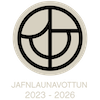Almenn verkefni 2022
Almenn verkefni 2022
Heiti verkefnis : | Vatnsleiðni blágrænna ofanvatnslausna í köldu sjávarloftslagi á Íslandi | |
Verkefnastjóri : | ||
Stutt lýsing á verkefninu: | ||
Sustainable Urban Drainage Systems (SuDS) include a diverse set of infiltration-based measures that are designed to convey water, reduce runoff peak and volumes, as well as enhance water quality via infiltration and interception. These hydrological functions are prone to deterioration during winter, especially when soil frost is present. Unlike inland cold regions, maritime cities are particularly vulnerable to the negative winter impacts due to frequent soil freezing, absence of thick insulating snow covers and intermittent midwinter snowmelt. In fact, rain-on-snow is the main culprit for urban flooding in the capital region of Iceland. Moreover, recent research suggests that repeated midwinter snowmelt contributes to the formation of soil frost. The functionality of infiltration-based systems relies heavily on the characteristics and properties of their filter media, vegetation and on the method of drainage used. The interlinkages between vegetation cover, soil, soil water and frost are complex and poorly understood, especially in the context of urban hydrology. Urban catchments tend to be more heterogeneous than their rural counterparts, exhibiting considerable spatial variability within small areas. New emerging monitoring technologies provide affordable and unique opportunities to resolve this spatial variability in real time. As winters are becoming milder due to climate change, there is a dire need to study the oscillatory rain, snow and frost conditions. Little is still known about the efficiency of SuDS elements in cold climates. Therefore, this research aims to better understand the winter infiltration performance of different SuDS element such as grass swales, permeable pavements and rain gardens. A comprehensive network of soil monitoring sensors will be installed in various SuDS elements in the residential area of Urriðaholt which was designed with a green-infrastructure system to infiltration and treat stormwater runoff locally. | ||
Tilgangur og markmið: | ||
The aim of the proposed research project is to assess the degree to which infiltration-based SuDS elements (e.g., grass lawns, roadside swales, permeable pavements, and rain gardens) can reduce surface runoff in urban catchments in cold maritime climate and the spatial variability in infiltration in an urban catchment. Specifically, this project aims to answer the following questions: · How are infiltration and frost formation influenced by vegetation density and type? · Which infiltration-based system is the most suitable for maritime winter conditions? · What are the physical and meteorological conditions that affect SuDS performance in cold climate the most? The proposed research project will be based on a field soil monitoring program of various infiltration-based green infrastructure elements and it will be an expansion on the research already conducted by the participants of this project "SuDS in Cold Climate". The study site has been instrumented with weather, soil, and flow rate sensors. To better understand the spatial variability of permeable surface covers in urban catchments, a network of affordable soil moisture and temperature sensors will be installed in various permeable surfaces (SuDS components) with contrasting vegetation and soil composition. The soil response during real time hydrological events will be monitored with high temporal resolution (1-minute intervals), which will include both soil temperature and moisture content. Soil drainage, frost formation and frost type will be analyzed and compared with SuDS elements. Additional to the soil data, meteorological observations (air temperature, relative humidity, and wind speed and direction) snow depth monitoring and solar radiation data are to be also collected during the project. Tarek Zaqout will be responsible for the field setup, data collection, and data analyzes. Hrund Andradóttir will help out with setup and some field collection and contribute to analyses and writing of results. | ||

